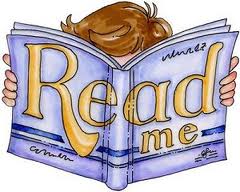 Been jumping through hoops and knocking my head against the wall since the day I finished my book of stories and began the publisher hunt. They call this phase “shopping” your book. And frankly, it sucks. Here’s why:
Been jumping through hoops and knocking my head against the wall since the day I finished my book of stories and began the publisher hunt. They call this phase “shopping” your book. And frankly, it sucks. Here’s why:
Saturday, Day 1: Finish Book
9 a.m. – 11:00 a.m. Finish going through manuscript proofed with track changes by my very good writing friend, Kevin, who is an awesome editor.
11:00 a.m. to Noon Figure how to save manuscript so track changes don’t appear anymore. Which involved a Google search, a couple of head knockings, etc.
Rest of the day/night: Go about having a life outside of the book, pretending not to think about it.
Sunday, Day 2: Find Publishers
8:30 a.m. – 3:30 p.m. Search through Poets & Writers extensive online database of small press publishers, stopping only for the necessities. Like bathroom breaks.
Why small press publishers, you may ask. Well, many are well-respected universities and presses, plus they’re best-suited for literary manuscripts. In fact, some of the best writers have been published by small press publishers. So, the reasoning goes, If they’re good enough for them, they’re good enough for me.
Monday – Friday, Days 3 – 7: Continue to find Publishers
8:00 a.m. to 5:00 p.m. Think about self-publishing while working the day job. Think about the cost, the self-marketing, the decision on which self-publisher to choose. Think maybe…..
6:00 p.m. – 8:00 p.m. Home. Continue search through Poets & Writers extensive online database of small press publishers for appropriate publishers for my book.
My Criteria for Appropriate Book Publishers:
- Publishers who publish short story collections.
- Publishers with current submission reading dates.
- Publishers whose submission guidelines you can meet.
Which brings more head-banging and hoop-jumping.
For one thing, finding an appropriate publisher is more challenging than you’d think.There’s a whole lot of small press publishers out there, but finding ones that don’t publish only poetry, or only novels, or only memoirs, or sci-fi, or mystery, or romance, or only want historical fiction.. well, as you can see, this subject deserves a whole other blog post.
For another, not all submission guidelines are alike. Each publisher has its own, very specific guidelines. Still, I’ve been through the submission process hundreds of times getting individual stories published, how hard could following a few book submission guidelines be? I soon found out.
Sample Book Submission Guidelines (underlining mine)
Publisher X:
1.IN “SUBJECT” LINE please type: LAST NAME / FIRST NAME / FIRST 2 WORDS OF MANUSCRIPT TITLE {What if your book title is only one word?}
2. COVER LETTER should include your bio. {Ok I have one of these.}
3. AESTHETICS STATEMENT must be attached to your email. This is NOT a synopsis or a summary of your plot, although you may include that. It’s a statement discussing your creative process and/or conceptual intent. It’s a description of why your manuscript is innovative, why you made the choices you made, how you expect the project to be read or viewed, what you were exploring, etc. REMEMBER: We’re interested in your creative process as much as (perhaps more than) the consumer product that results from it. {Really? So your book can suck, but if your process doesn’t….}
4. CONVERT manuscript to PDF. If the PDF is larger than 8MG, please send email requesting submission instructions. {Why not just say, DropBox?}
5.IMPORTANT: Our Publishing Contract requires that you have read, understood and agree with our Business Model. Please read it before submitting your manuscript. {They have a Business Model?}
Publisher Y:
Steps to Publishing With Us
1. Prospective author is interviewed by publishing representative regarding his or her work, interview typically runs 30-45 minutes, and during the interview we ask a series of questions to ensure that your work is a good fit for our publishing model. {Yikes, I thought my job hunting days were over.}
2. After the phone interview prospective author receives an e-mail to submit the work for review. {How nice of them not to say, “Or not.”}
Publisher Z:
1. We prefer to receive hard copies of submissions via snail mail. {Wait – you mean actual PAPER?}
Well that’s just a sampling. I could give dozens upon dozens more, but will spare you.
If only I could spare myself. Writing is hard enough. Finishing your book takes months, even years, of rewriting, finding and getting feedback you can trust, more rewriting, lots of re-imagining, removing stories from your book, adding others you were saving for your next book. Lot of decisions, lots of second guessing yourself, lots and lots of hours spent on the book. Still, it’s your writing, and it’s something you love and don’t really consider work.
But this book shopping stuff? There are at least a thousand small press publishers in this database and I spent one week searching through a couple of hundred of them. Result? I found 3 that might consider my book.
So next week, it’s back to the database where, if I’m lucky, I might find 3 more.









